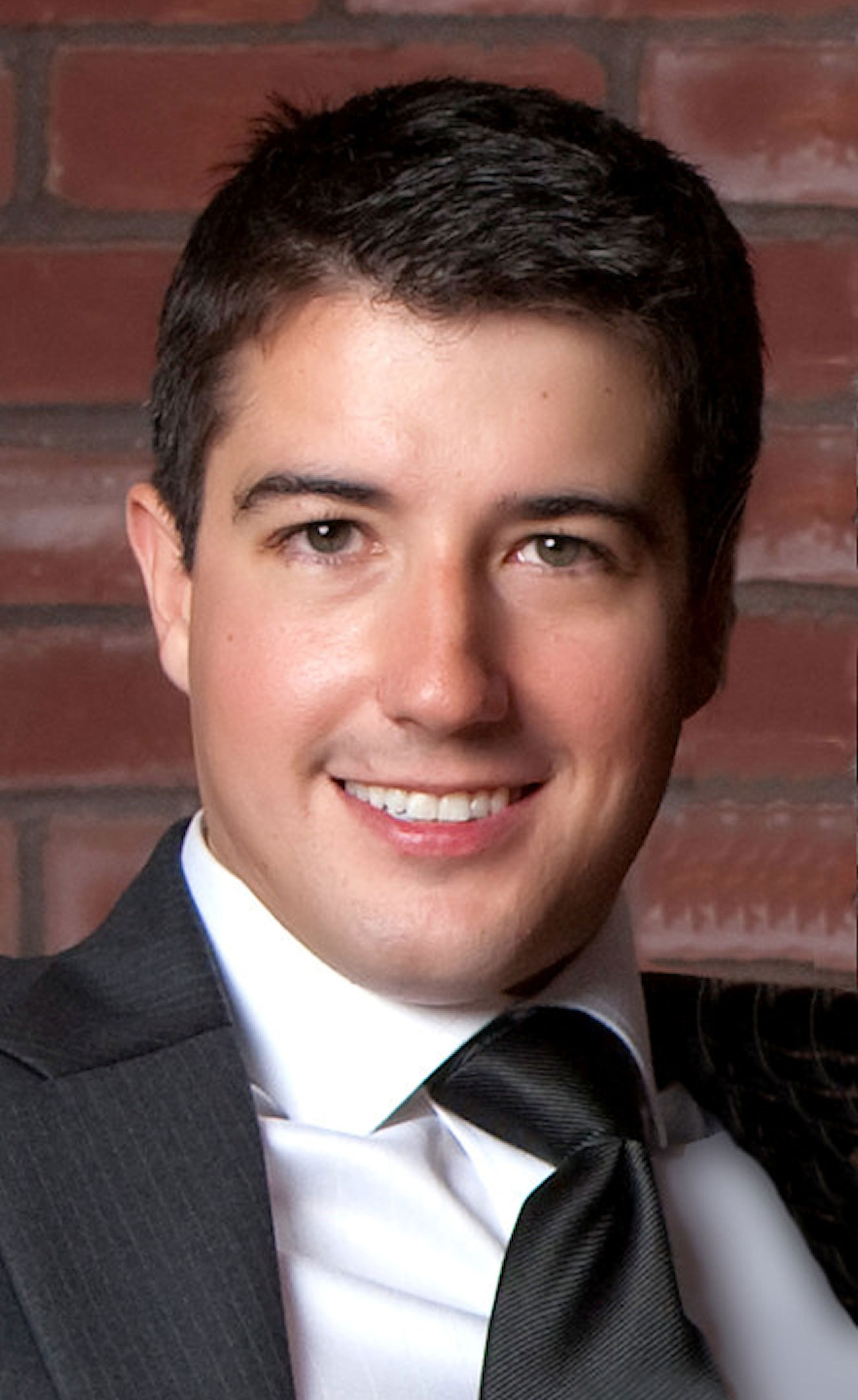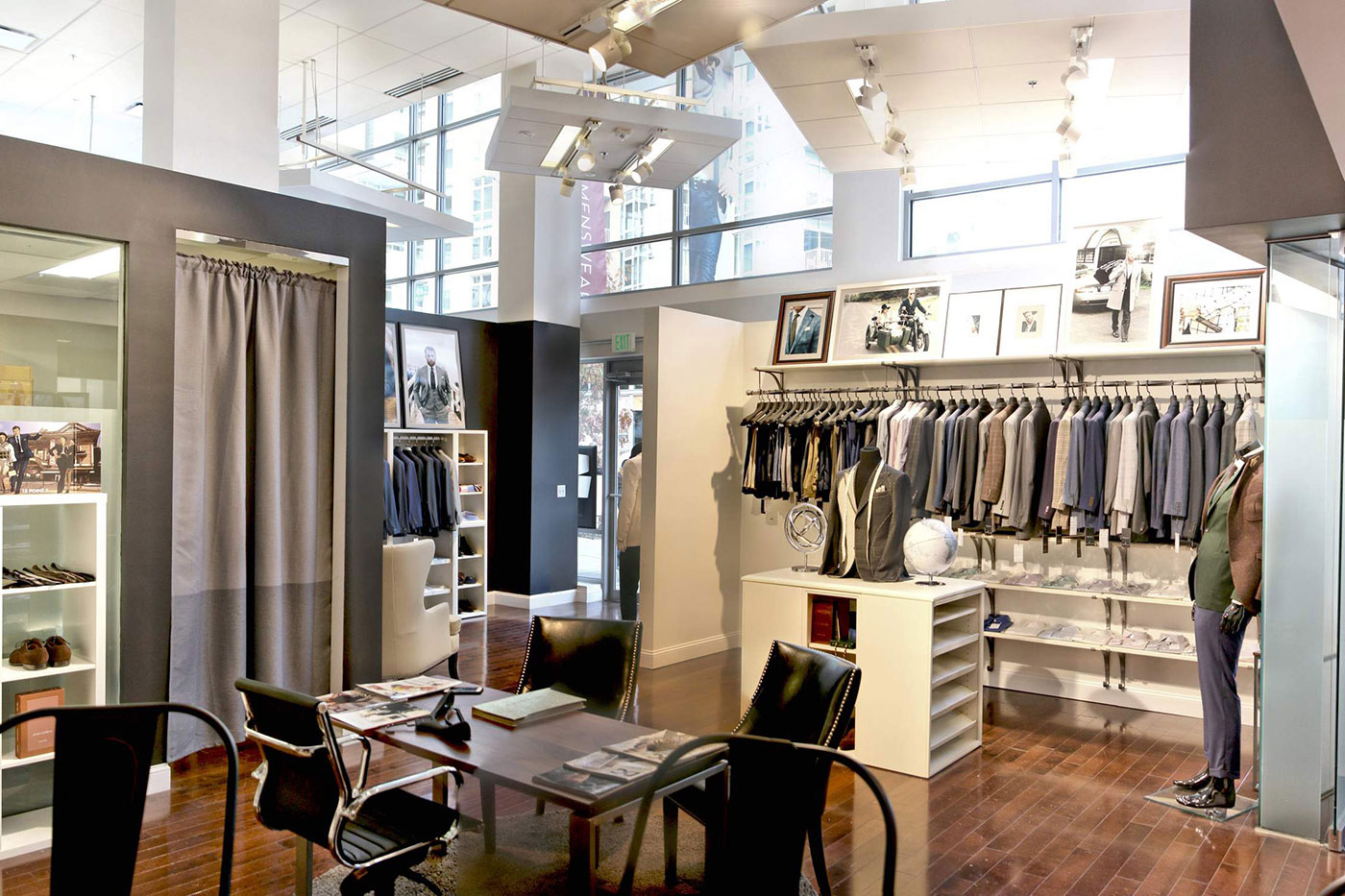Matthew Mueller’s journey into the custom menswear business began in the halls of some of Dubai’s largest hospitals.
Mueller, a 2001 graduate of the University of Virginia’s McIntire School of Commerce, runs Knot Standard, a digitally based custom menswear company that Inc. Magazine named the fastest-growing menswear brand in the U.S. and the 10th-fastest growing retail company in 2015. He spoke at this month’s South by Southwest festival in Austin, Texas, discussing how failure, technology and company culture have shaped Knot Standard’s success.

Matthew Mueller, a UVA alumnus, co-founded Knot Standard, recently named the fastest-growing menswear brand in the U.S.
A few years ago, however, Mueller was working as a health-care technology consultant in Dubai, first with Harvard’s University Hospital and Medical School and later developing information technology systems for hospitals across the Middle East. In those roles, Mueller drew on lessons learned from tech-based startups that he began during his time at UVA and ran for a few years after graduation, making connections in the health-care industry that would eventually lead to his four-year stint in Dubai.
“That was an interesting experience, and I have a ton of stories, good and bad, from various places in the Middle East where hospitals were being built,” Mueller said.
Though he was respected for his technological savvy, Mueller noticed that some in Dubai were less enthused about his choice of suits.
“Americans in general, myself included, got made fun of for the way we dressed,” he said. “I had never really thought about custom suiting. I always just thought you should buy the best brand name suit that was on sale.”
Intrigued, Mueller took his suits to a local tailor, who, eyeing the fit, dismissed it as unsalvageable. Instead, the tailor made Mueller his first custom suit.
“It fit perfectly, and I became a bit obsessed with the process,” Mueller said. “My wife and I began buying and importing fabric and when friends came to visit, we would take them to get a custom suit made.”
As more friends began asking questions, it became clear they had struck a nerve. Mueller and his friend and business associate John Ballay decided to build a website to collect custom suit orders, filling the orders themselves with tailors in Dubai. Since their customers could not be present for fittings, they developed a series of measurements that could be recorded online and turned over to the tailors.
Orders rolled in steadily, but Mueller and Ballay’s big break came in 2011, when Groupon, a global e-commerce site offering daily deals, approached them. The company wanted to run a Black Friday promotion for a tailored suit, and they wanted Mueller and Ballay to provide the suits.
“We did $50,000 worth of sales in just a few days, and it became abundantly clear that we needed to take this on full-time, not just as a side business,” Mueller said.
The pair left their day jobs in Dubai and returned to the U.S., and Knot Standard was born.
The first step, they decided, was to build the technology to perfectly fit suits without a physical fitting. Mueller brought on another UVA alumnus, Adam Namejko, who also attended high school with him at Thomas Jefferson High School for Science and Technology in Alexandria.
“We spent most of 2012 creating essentially the first completely digitized machine tailoring system,” Mueller said.
The result is a blend of ultramodern tech and old-world craftsmanship. Customers provide measurements and information to create an online profile, which Knot Standard’s technology system translates into a digital 3D mesh model of the customer. To guard against human error, Mueller and his team created algorithms that crosscheck measurements against a database of past garments – about 100,000 garments worth of data. Final measurements are fed into laser cutters, which precisely cut whichever fabric the customer has chosen.
“We use all of the digital intelligence from everything that we have ever made, with an algorithm that keeps learning as we make more clothing,” Mueller said.
Then, the old world takes over. Tailors, based around the world, stitch together each garment by hand, using fabrics sourced from mills in England, Scotland and Italy that have long been leaders in the industry.
Digitizing the fitting process allows Knot Standard to offer these luxury materials at a lower price point. Their custom suits start at around $600 for a handmade Italian wool suit, lower than the average price of around $1,000.
“One of our biggest challenges at first was showing people that this was possible and getting them to believe us,” Mueller said.
They seem to believe now. Knot Standard’s rate of customer returns hovers around 3 percent, which Mueller calls “shocking” for any clothing company. Repeat customer rates are over 70 percent, and the company now has seven showrooms in the U.S., with company headquarters in New York.

Knot Standard’s showroom in Washington, D.C.
Now, Knot Standard is eyeing a new frontier for the menswear industry – virtual reality. Mueller and his team have been working with a special effects company for 18 months, perfecting a virtual reality experience that will allow customers to see the garment they are creating as they describe it to a stylist, down to tiny details like how light might reflect off of a particular fabric. Mueller hopes the technology will launch in Knot Standard showrooms in a few weeks.
“In real time, you are designing with a professional the clothes you are going to wear. When you are done with that appointment, the garment that you just designed is going to be made by hand and sent back to you in three weeks, looking just like the picture you saw,” Mueller said. “There is nowhere else you can do that.”
Media Contact
Article Information
March 28, 2016
/content/alumnus-matthew-mueller-brings-tech-revolution-custom-menswear

